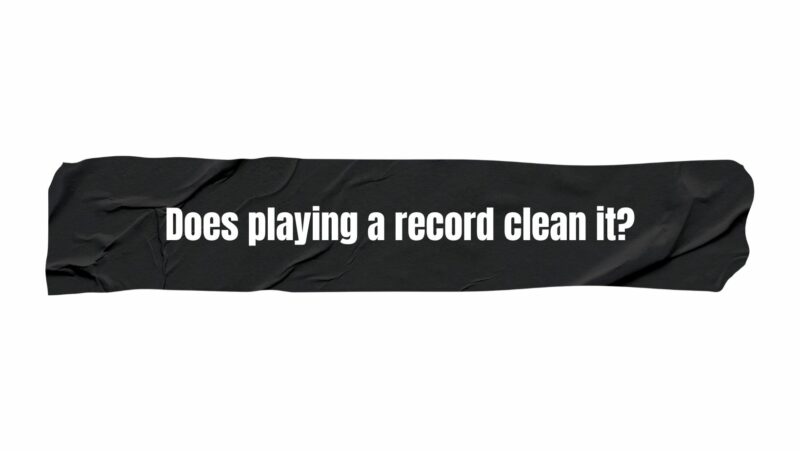There is a common misconception that playing a vinyl record can help to clean it. However, this is not the case. Playing a record can actually damage it if it is dirty or dusty.
The stylus of a turntable is a very delicate piece of equipment. It is made of a very fine needle that rests in the grooves of the record. When the record is played, the stylus vibrates as it follows the grooves. This vibration can help to remove some loose dust and dirt from the record surface. However, it cannot remove more stubborn contaminants, such as grease or compact dust.
In fact, playing a dirty record can actually damage the stylus. The stylus can become clogged with dirt and dust, which can cause it to skip or jump. It can also damage the grooves of the record, which can make it sound worse.
If you want to clean your vinyl records, the best way to do it is to use a record cleaning brush or a wet cleaning solution. A record cleaning brush is a simple tool that can be used to remove dust and dirt from the record surface. A wet cleaning solution is a more thorough way to clean records, but it is important to use it carefully to avoid damaging the record.
Here are some tips for cleaning vinyl records:
- Use a record cleaning brush to remove loose dust and dirt.
- Use a wet cleaning solution if the record is dirty or dusty.
- Be careful not to overwet the record.
- Dry the record thoroughly before playing it.
By following these tips, you can keep your vinyl records clean and sounding their best.
Here are some additional information about cleaning vinyl records:
- Avoid using harsh chemicals or abrasive cleaners. These can damage the record surface.
- Do not use a vacuum cleaner to clean records. The suction can damage the grooves.
- Do not play dirty records. This can damage the stylus and the grooves.
- Store records in a clean, dry place. This will help to prevent them from getting dirty or dusty.


